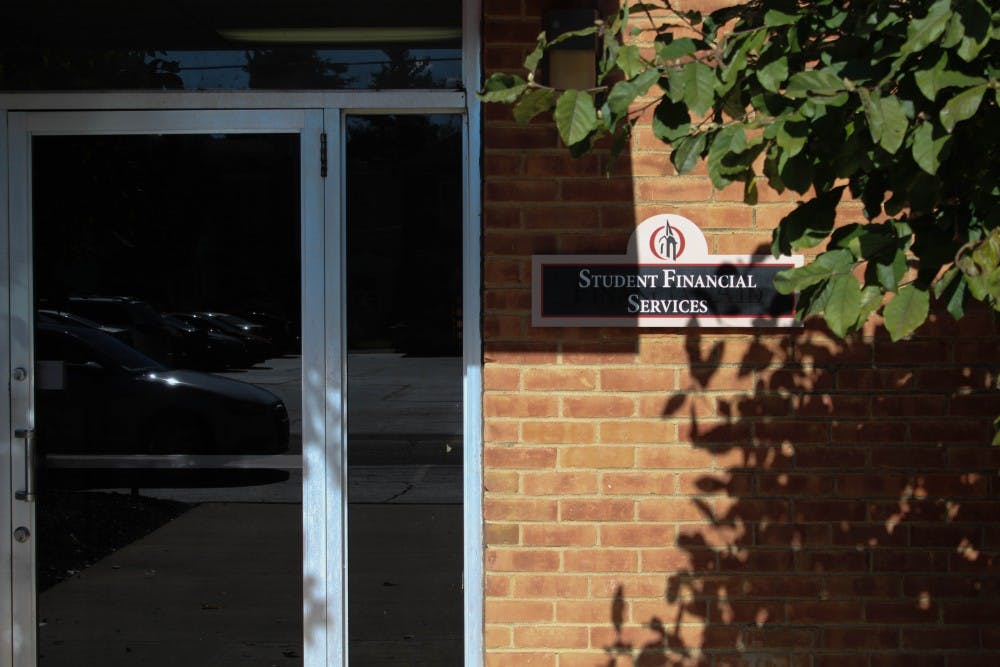Otterbein University’s new Opportunity Scholarship will cover all tuition expenses for students of low socioeconomic status. President John Comerford announced details about the scholarship at a university senate meeting on Oct. 10.
The scholarship is for in-state students starting in the fall of 2019 who are eligible for the federal Pell Grant. After leveraging federal grant money and federal loans, the university will cover remaining expenses for tuition. It will not cover any room and board expenses.
“We would love to live in a society where eventually poverty is not such a driver of what students experience and whether or not they can go to college,” said Vice President for Enrollment Management Jefferson Blackburn-Smith. “We know that education is still the primary means by which we lift people from one economic status to another, so this is important work for us to do.”
According to Blackburn-Smith, the number of Pell-eligible students per class has been around 150-184 for the past several years. Through the scholarship, the university’s average out-of-pocket tuition expenses would be around $14,000 to $15,000 per student.
Some funding for the scholarship will come from the STAND campaign. The rest will come from the university’s general budget, which is supported by student generated revenue, like tuition.
Recently, the university announced a recommended tuition increase of $600 per year. Blackburn-Smith said the proposed tuition increase is not directly related to the Opportunity Scholarship fund.
“Think of the Opportunity Scholarship as foregone revenue, rather than cash handed out to somebody,” said Blackburn-Smith. “The Opportunity Scholarship is one of those things we use to attract students to generate more revenue.”
Students on campus have mixed feelings about the new scholarship.
Kevin Collins, a sophomore systems engineering major, said, “I think that it’s an important scholarship, but moving on from that, because of the socioeconomic differences that exist, the students coming in through this will face different challenges that Otterbein may not be able to support.”
Current students who meet eligibility requirements for the scholarship cannot participate.
“This is a new program for new students coming in,” said Blackburn-Smith. “Any student here struggling with the cost of attendance should work with our student financial services office to find out what other resources are available.”
The Opportunity Scholarship is a continuation of other university projects that address need for students from low-income families, like the Central Ohio Urban Districts Initiative. This is a financial aid program that supports graduates of local school districts that are struggling with poverty.
Other universities have recently created similar scholarship programs. In September, Capital University announced their Good Guarantee program, which ensures half-tuition for students whose parents are involved in mission-centered, public service careers. Ohio Dominican University also created the Panther Project, which financially supports students of low-income families.
At the meeting, the senate also discussed increasing undergraduate enrollment, a budget plan to address the university’s increasing deficit and moving the student to faculty ratio to 13:1.








